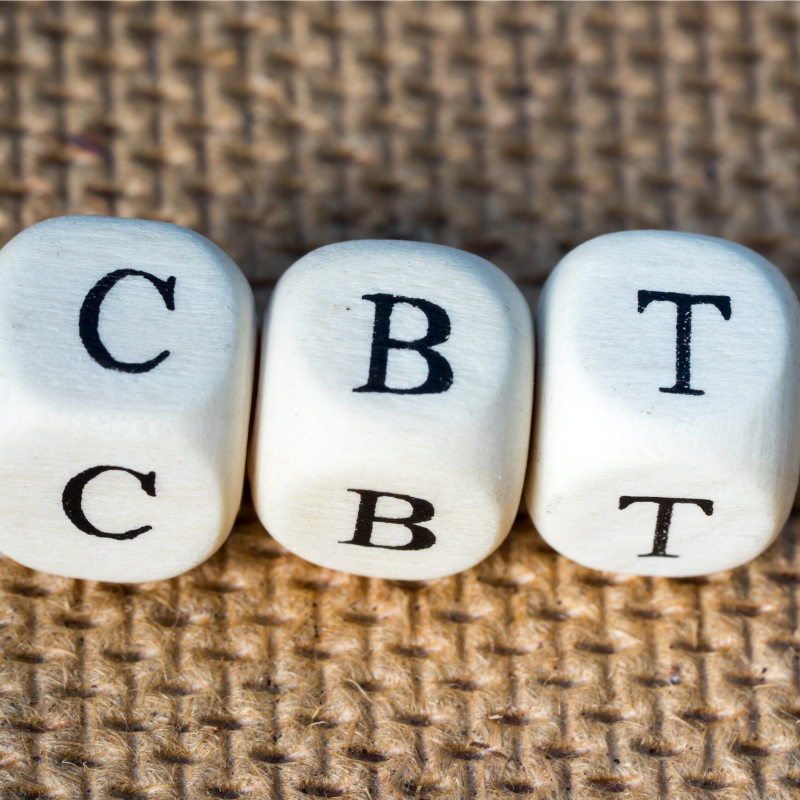Veterans encounter distinct challenges regarding their mental health. The transition from military life to civilian life can be incredibly tough, and many veterans struggle with mental health issues such as PTSD, anxiety, depression, and even substance abuse. One treatment that has gained significant attention and success in recent years is Cognitive Behavioral Therapy (CBT). But does CBT help veterans? Let’s explore how this effective therapy works and why it might be the key to healing for those who’ve served our country.

What is Cognitive Behavioral Therapy (CBT)?
Cognitive Behavioral Therapy is a type of psychotherapy aimed at transforming negative thought patterns and behaviors. CBT is founded on the idea that our thoughts, emotions, and behaviors are linked. By identifying and challenging irrational or harmful thoughts, CBT helps individuals create healthier behaviors and emotional responses.
In CBT, therapists work with clients to help them identify distorted thinking and replace it with more realistic and balanced perspectives. It’s a practical, goal-oriented approach that empowers individuals to take charge of their mental health.
Why is CBT Effective for Veterans?
Veterans often experience mental health challenges linked to the trauma, stress, and emotional strain of military service. The nature of combat, exposure to life-threatening situations, and the difficulty of reintegrating into civilian life all contribute to the complex mental health needs of veterans. This is where CBT shines.
1. CBT and PTSD: A Lifeline for Veterans
Post-traumatic stress disorder (PTSD) is among the most prevalent mental health challenges faced by veterans. PTSD occurs after experiencing or witnessing traumatic events, and it can manifest as flashbacks, nightmares, anxiety, and avoidance of situations that remind the person of the trauma. Cognitive Behavioral Therapy is recognized as one of the most effective treatments for PTSD.
Through CBT, veterans learn to confront their traumatic memories in a safe and structured environment. This process, called exposure therapy, helps them desensitize to trauma triggers, reducing the emotional charge associated with those memories. CBT also helps veterans challenge the negative beliefs and emotions that come with PTSD, such as guilt, shame, and fear.
2. Managing Anxiety and Depression
In addition to PTSD, many veterans struggle with anxiety and depression, especially as they adjust to life after service. These conditions can often go hand-in-hand, making it difficult to function on a daily basis. CBT is highly effective in treating both anxiety and depression by helping individuals recognize unhelpful thought patterns and replace them with healthier alternatives.
For example, veterans may have negative thoughts like, “I’m never going to be able to adjust to civilian life,” or “I’m worthless.” CBT works by helping them challenge these thoughts and replace them with more constructive beliefs. By improving their thinking patterns, veterans can start to experience less anxiety and more positive emotions.
3. Building Coping Skills for Daily Life
CBT doesn’t just focus on processing trauma or dealing with specific mental health symptoms; it’s also about building long-term coping skills. For veterans, learning how to manage stress, regulate emotions, and develop healthy problem-solving techniques is crucial for reintegrating into civilian life.
CBT equips veterans with tools like mindfulness, relaxation techniques, and problem-solving strategies to help them face daily challenges. These skills aren’t just beneficial for mental health treatment; they become a part of their daily routine, making it easier to navigate life after service.
4. Short-Term Treatment with Long-Term Benefits
One of the advantages of CBT is that it is typically a short-term therapy. Unlike other therapeutic approaches that may take years to show results, CBT is designed to produce tangible improvements in a relatively short time frame. Veterans with busy schedules or those living in areas with limited access to mental health care appreciate that CBT can be a focused and effective treatment in just a few months.
Although the therapy itself is brief, its effects can last for years. Many veterans report a significant improvement in their mental health long after completing CBT, as they continue to apply the coping strategies and techniques learned in therapy.
Real Success Stories: Veterans Who Have Benefited from CBT
Numerous veterans have shared their success stories after undergoing CBT. One such veteran, John, served in combat and developed severe PTSD after returning home. After years of struggling with nightmares, flashbacks, and anxiety, he turned to CBT. Over the course of a few months, John learned to process his trauma and adopt healthier coping mechanisms. Today, he feels more in control of his life and has a much better outlook on the future.
Similarly, Sarah, a veteran who struggled with depression and anxiety, found CBT to be life changing Through therapy, she learned how to challenge the negative thoughts that were fueling her depression, and as a result, she now feels more hopeful and confident in her ability to manage her emotions.

Is CBT the Right Treatment for Every Veteran?
While CBT is highly effective for many veterans, it’s important to remember that every person is different. Not all veterans will respond the same way to CBT, and some may require a combination of therapies to address their mental health needs. For instance, veterans with severe trauma may benefit from a more intensive treatment program or may need medication alongside therapy.
That said, the accessibility, effectiveness, and goal-oriented nature of CBT make it an excellent option for many veterans seeking mental health treatment.
Conclusion
Cognitive Behavioral Therapy has proven to be an invaluable tool in helping veterans cope with the mental health challenges they face. By addressing the root causes of PTSD, anxiety, and depression, CBT empowers veterans to take control of their recovery, rebuild their lives, and move forward with hope. As more veterans gain access to this powerful form of therapy, we can look forward to a future where mental health treatment is not just about managing symptoms, but about helping our heroes live full, healthy lives.






